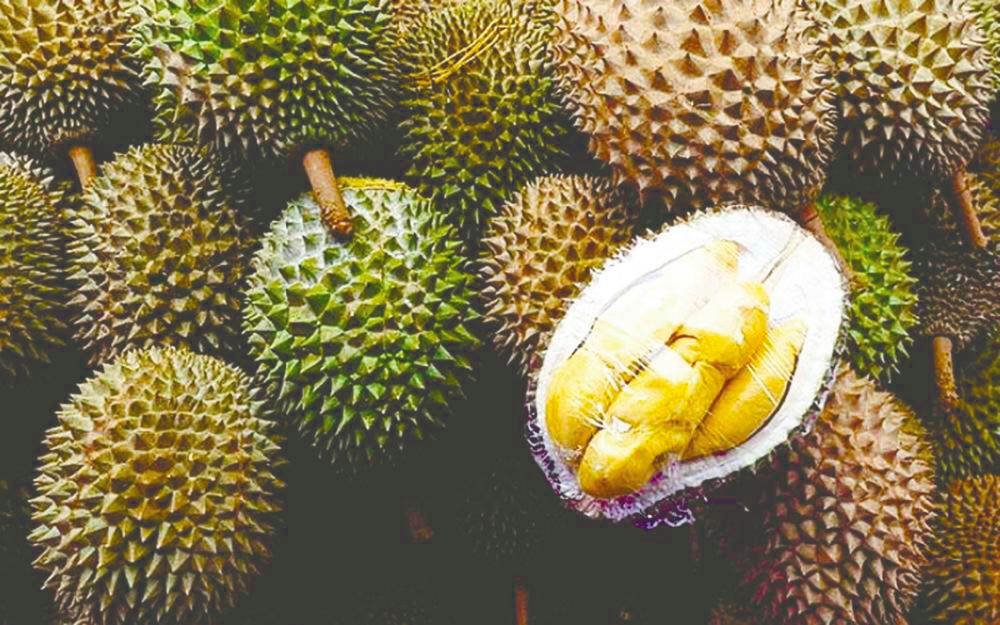BEIJING: The volume of China’s durian imports from Malaysia is expected to increase by between 15 and 20 per cent this year, driven by sustained consumer demand despite recent weather-related challenges in Malaysia, according to the Malaysia Chamber of Commerce and Industry in China (MayCham).
Its chairman Loh Wee Keng said demand from Chinese consumers continues to outpace supply, particularly for premium varieties such as Musang King and D24.
“Although heavy rain in Malaysia caused some fruits to drop prematurely, I foresee the overall export volume this year to be 15 to 20 per cent higher compared to last year,” he told Bernama, adding that demand remains robust in the China market.
He explained that Malaysia’s Musang King continues to command strong interest, especially among premium fruit consumers in China.
“Right now, it’s impossible to get Grade A Musang King below RM30 per kilogramme (kg) at farm price. During the off-season like May, prices can go up to RM80 per kg. For D24, the lowest is about RM15 per kg,” he said.
According to China’s Ministry of Agriculture, the country imported 19.25 million kg of durians from Malaysia worth US$212.05 million (RM1 billion) between January and December 2024.
Fifteen years ago, Loh said the farm price for frozen Musang King was about RM25 per kg and could drop as low as RM12 per kg during peak season.
“While for frozen D24, the highest could be RM15 per kg, the lowest can come to RM3 per kg,” he said.
He also said Malaysia started to export durians to China since 2010.
“We are not competing with Thai durians because the prices and quality are completely separate matters. We are actually competing with kiwis and cherries as well as those products from Japan such as strawberries and grapes,” he pointed out.
Loh, who had pioneered Malaysia’s frozen durian exports to China following Beijing’s approval in 2011, said industry players must protect the integrity of the Malaysian durian brands in China.
“Some traders mislabel kampung durians and sell them as Musang King to get higher profits. This is damaging. Even kampung durians have a market if sold honestly.
“We have to educate Chinese consumers on the real characteristics of Musang King, D24 and others,” he emphasised.
He also said the Chinese government has been very supportive and has shown leniency on Malaysian durian exports due to strong diplomatic ties.
Hence, he said the businesses must maintain the reputation and bilateral relations.
Commenting on attempts to cultivate Musang King in China’s Hainan island, Loh said the results have not matched the standards of Malaysian-grown durians.
“There was initial excitement, but it faded quickly. The taste is different due to the soil and climate. My friend also tried growing it here, but it wasn’t successful. Hainan Musang King cannot replace the Malaysian original,” he added.









